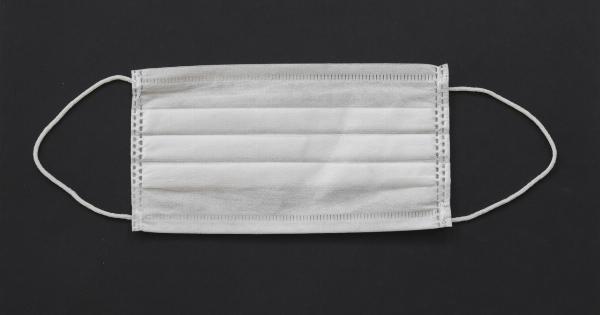A sore throat can put a dampener on your day. It can make swallowing painful, create discomfort while speaking, and in severe cases, even interfere with your ability to eat and drink.
While a sore throat is commonly caused by a viral infection, such as the common cold or flu, it can also be the result of allergies, acid reflux, or excessive vocal strain. Whatever the cause, finding simple ways to relieve the discomfort can make a big difference in your overall well-being. In this article, we will explore some easy and effective methods to find relief from sore throat discomfort.
1. Stay Hydrated
One of the simplest and most important steps in relieving a sore throat is to stay hydrated. Drinking plenty of fluids helps to keep your throat moist and soothes irritation.
Warm liquids such as herbal teas or warm water with honey and lemon are particularly comforting. Avoid caffeine and alcohol, as they can dehydrate your body and aggravate your sore throat. Remember to take small, frequent sips throughout the day to ensure adequate hydration.
2. Gargle with Salt Water
Gargling with warm salt water is a time-tested remedy for soothing a sore throat. The salt helps to reduce inflammation and minimize the pain.
Dissolve half a teaspoon of salt in a glass of warm water and gargle with the solution for 30 seconds before spitting it out. Repeat this a few times a day to achieve the best results. It is important not to swallow the saltwater while gargling.
3. Use a Humidifier
Dry air can worsen a sore throat and prolong the discomfort. Using a humidifier adds moisture to the air, which can help soothe your throat and alleviate the symptoms. Place a humidifier in your bedroom, especially while sleeping, to keep the air moist.
Alternatively, you can inhale steam by standing in a hot shower or carefully leaning over a bowl of hot water and covering your head with a towel. This can provide immediate relief for your sore throat.
4. Honey: Nature’s Remedy
Honey has been used for centuries as a natural remedy for various ailments, including sore throat. It has both antibacterial and soothing properties, which can help alleviate sore throat discomfort.
Mix a teaspoon of honey with warm water or your favorite herbal tea and sip slowly. Remember that honey should not be given to children under the age of one due to the risk of botulism.
5. Lozenges and Sprays
Over-the-counter lozenges and throat sprays can provide temporary relief from sore throat discomfort. Look for products that contain ingredients like benzocaine or menthol, as they can numb the throat and reduce pain.
Always follow the recommended dosage and read the instructions carefully before using any medication.
6. Rest Your Voice
If your sore throat is the result of excessive vocal strain or yelling, it’s important to rest your voice. Avoid speaking loudly or shouting, as it can further irritate your throat.
Whispering should also be minimized, as it puts additional strain on your vocal cords. Give your voice a break and communicate through writing or using non-vocal methods whenever possible.
7. Avoid Irritants
Avoiding irritants is crucial to relieving sore throat discomfort. Environmental factors such as smoke, pollution, and strong chemical odors can aggravate your throat.
If possible, stay away from areas with heavy smoke or wear a mask to filter out pollutants when necessary. Additionally, try to minimize exposure to cleaning products and other irritants that can trigger throat irritation.
8. Warm Compress
A warm compress applied externally can help relax the muscles in your throat and provide relief from sore throat discomfort. Soak a clean cloth in warm water, wring out the excess liquid, and place it gently on the outside of your throat.
Leave it on for 10-15 minutes and repeat as needed. Make sure the compress is not too hot to avoid burning your skin.
9. Maintain Good Oral Hygiene
Practicing good oral hygiene is important to reduce the risk of bacterial infections and soothe a sore throat.
Make sure to brush your teeth twice a day, floss regularly, and use an alcohol-free mouthwash to keep your mouth clean and free from bacteria buildup. Paying attention to your oral health can contribute to faster healing and alleviate discomfort in your throat.
10. Seek Professional Advice
If your sore throat persists for more than a week, is accompanied by severe symptoms such as high fever or difficulty swallowing, or if you frequently experience recurring sore throats, it is advisable to seek professional medical advice.
A healthcare professional can evaluate your condition, determine the underlying cause, and recommend suitable treatment options.



























